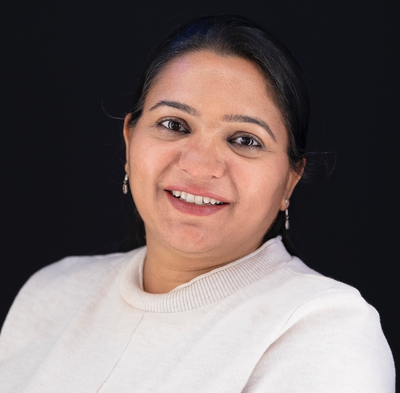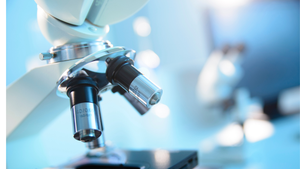Healthcare systems under pressure as life expectancy goals intensify
Director of Ageing Research Dr Richard Siow argues that true longevity is about prevention, mental health, and social policy, not miracle clinics or anti-ageing pills.

The word longevity has become a shorthand for eternal youth. From biohacking retreats to billionaires funding age-reversal labs, the longevity economy is often portrayed as the next trillion-dollar frontier. Dr Richard Siow, Director of Ageing Research at King’s College London and Board Member of the Longevity Science Foundation, however, argues that the reality is both simpler and more profound.
“It’s just the narrative, the marketing, the PR, and the hype, that is driving the word longevity,” Dr Siow says. “No one actually understands what it means, and that’s why people are utilising that ambiguity to drive the industry. It’s a bubble. It will burst.”
Longevity not the same as anti-ageing
For Dr Siow, longevity is not about defying time, but about living well even in one’s sunset years. “It’s not anti-ageing,” he says. “It’s about remaining as healthy as possible, for as long as possible, and as happy as possible.”
He speaks from both scientific and personal experience: his 90-year-old father recently suffered a stroke. “He was pretty healthy for his age,” Dr Siow reflects. “If you age healthily and your healthspan, which is simply the years you live in good health, is long, then you’ve already achieved longevity. Ideally, you live happily and end quickly.”
The distinction between lifespan (years lives) and healthspan (years lived well) sits at the core of what Dr Siow calls the “prevention economy”, a term now used by analysts worldwide to describe a shift from reactive care to proactive health management.
The science of prevention
Dr Siow’s research focuses on bridging laboratory science and clinical reality. This is a gap that, he argues, remains far too wide. “Longevity science is understanding not only the things that go wrong, but how we can use science for prevention,” he says. “That means early diagnostics, early detection, and biomarkers for health not just for disease.”
He points to the success of lateral flow tests during the COVID-19 pandemic as an example of how health technology can be democratised.
“Those tests were accessible because they were subsidised by governments,” he notes. “They were simple, widespread, and preventive. That’s the mindset we need for ageing populations — early detection and affordable diagnostics at scale.”
According to the United Nations, the number of people aged 65 and older is expected to double by 2050, reaching 1.6 billion globally. “That’s an emergency,” Dr Siow stresses. “Healthcare systems are already stretched. Governments have no choice but to prioritise prevention and early detection to keep people out of the healthcare system.”
AI, data, and the ethics of prediction
Artificial intelligence is often heralded as the next frontier of longevity, capable of predicting biological age, tracking healthspan, and tailoring interventions, but Dr Siow is cautious. “AI is just advanced statistics,” he says. “The computing power is there, but the challenge is data quality. What works in Dubai or Abu Dhabi won’t apply in Singapore or London. It’s all about the data, population-level and individual-level, for instance, and whether it reflects reality.”
Dr Siow also raises ethical concerns about data privacy and trust. “Many people are afraid of releasing their personal health data to large corporates,” he says, adding,“They fear their DNA or health records being sold or accessed by employers or governments.”
That mistrust, he argues, can only be overcome through government-led frameworks. “It has to be government policy,” he insists. “Employers benefit too, if you take care of your workforce, you save money on absenteeism. But prevention must be legislated, the way we now tax sugar, tobacco, and alcohol.”
Culture and the wisdom of the East
Dr Siow, who regularly collaborates with researchers globally, believes that traditional medicine insights are often are overlooked. “Traditional Chinese Medicine and Indian Ayurveda have been practising longevity for thousands of years,” he says. “They’re about maintaining health, not extending lifespan. There’s science there but Western institutions haven’t funded enough studies to validate it.”
In 2024, Chinese universities such as Peking University Health Science Center launched new longevity research centres grounded in TCM principles. Dr Siow sees such efforts as a bridge between cultural longevity and modern biomedicine. “We have a lot to learn,” he says. “It’s not about stem-cell injections or IV vitamin drips. It’s about education. It is about teaching people how to live healthily.”
Democratising longevity
Dr Siow notes the future of longevity lies in public health, not private luxury. “Data and health interventions must be democratised,” he says. “During COVID, people could collect test kits from supermarkets. That’s how prevention should work. It should be accessible, affordable, and universal.”
His thoughts are largely in line with the UN Decade of Healthy Ageing (2021–2030), which calls for adding life to years rather than simply years to life. “Longevity should not be about elite clinics or the next wonder drug,” Dr Siow concludes. “It’s about happiness, mental well-being, and living healthily for as long as possible.”
• Longevity isn’t equivalent to anti-ageing. True longevity is about healthspan, not lifespan. • Prevention, not supplements or stem cells, is the real driver. • Algorithms powered by artificial intelligence are only as good as the data that train them. • Governments globally must legislate prevention and data ethics. • Ayurveda, homeopathy, and traditional Chinese medicine (TCM) offer proven models for holistic health. • Democratisation, not exclusivity, will define the longevity revolution. |
Join us at WHX Dubai where brilliant minds of the healthcare industry will gather at the Dubai Exhibition Centre in World Expo to collaborate and pave the road towards sustainable strategies and future-ready innovation. Secure your pass today!



